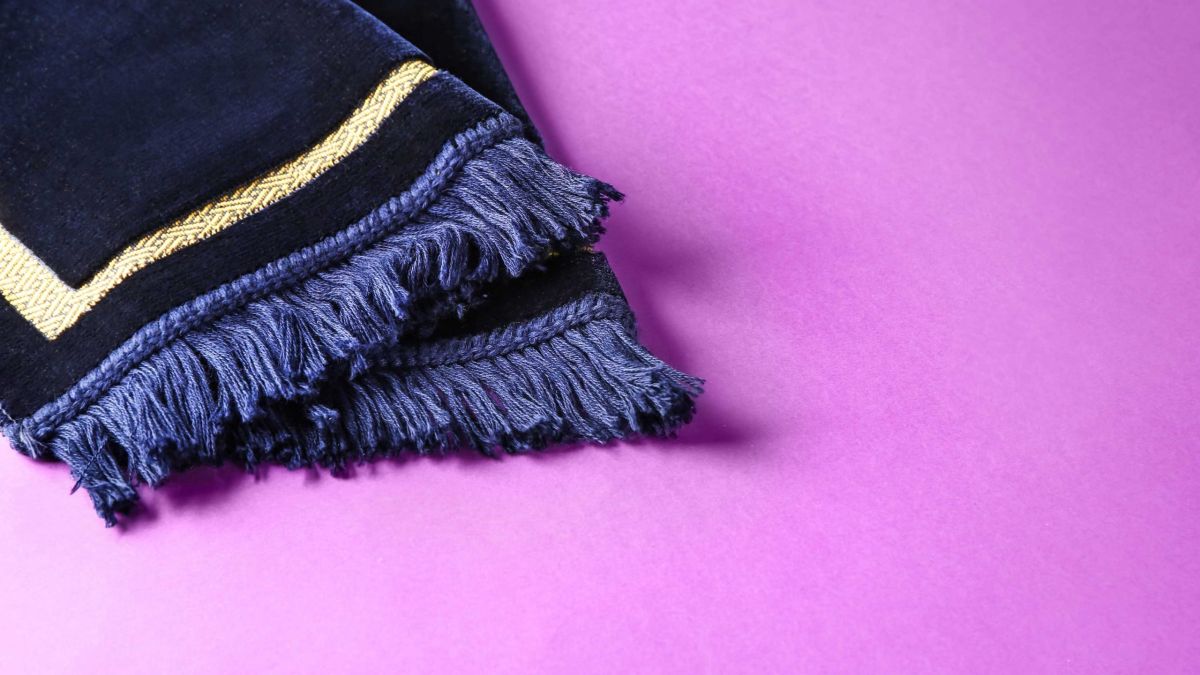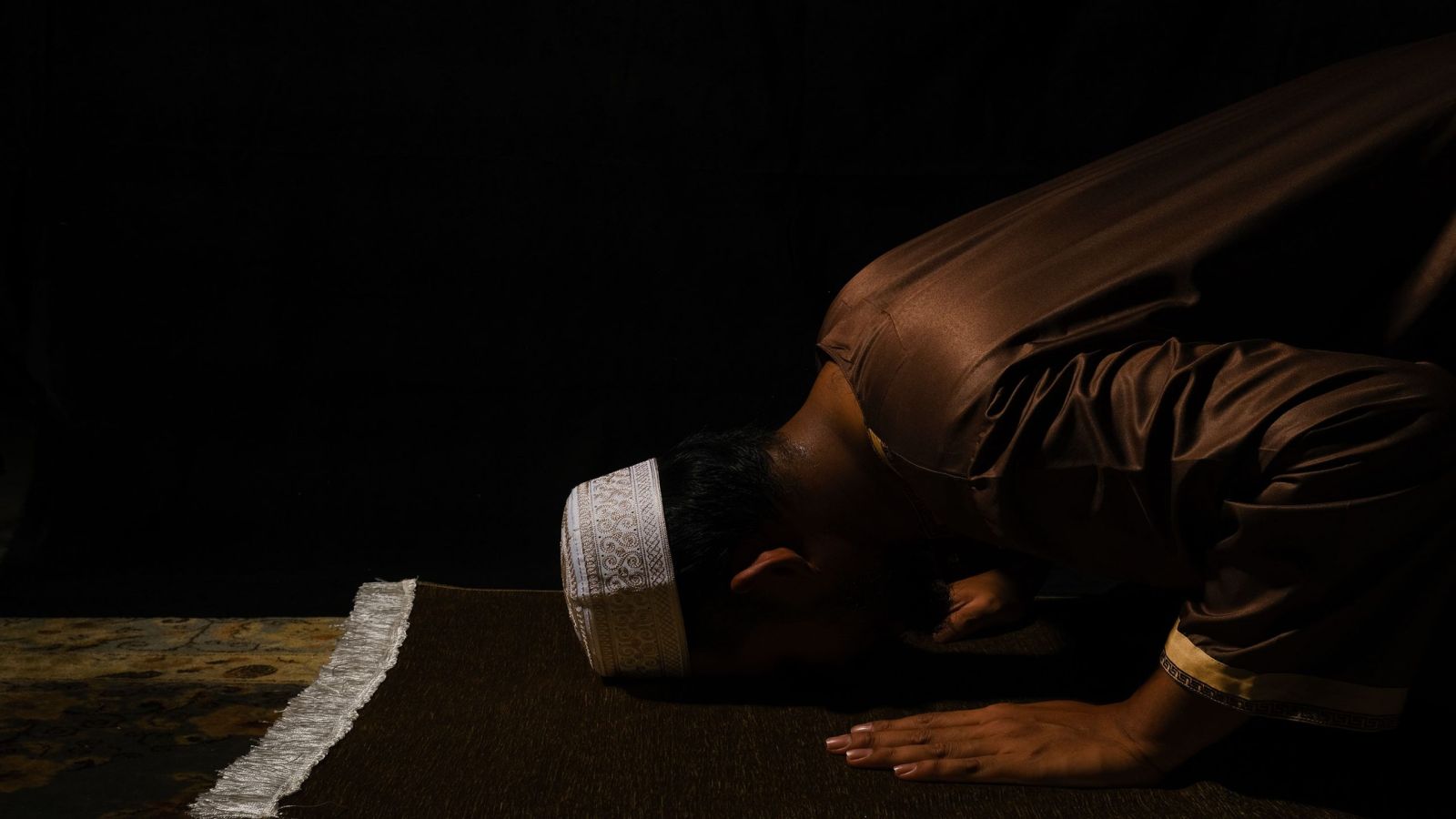Does Touching Women Invalidate Wuḍūʾ?
Imām Muḥammad ibn Ṣālih al-ʿUthaymīn


Imām Muḥammad ibn Ṣālih al-ʿUthaymīn (d. 1421 AH) said:
As for touching women with desire, it is considered the fifth invalidator of wuḍūʾ. In our saying ‘touching,’ we mean a man touching a woman when driven by sexual desire.
The phrase (touching) used here [by the Ḥanbalī madh`hab] appears general; not distinguishing between the young or old, sane or otherwise, or those who are free or in servitude to another.
They also have not explicitly stated that touching is referring only to the palm of the hand. Thus, according to them, touching is an encompassing term and may occur with any part of the body provided it is done with desire.
The use of the article (بـ) ‘with’ before desire denotes that the touching must be accompanied by such feelings. While others use the article (بـ) ‘because of’ before desire which would denote reason rather than pure accompaniment. That is, the touching has occurred because of desire.
The phrase woman refers only to one that has reached womanhood (i.e. puberty). Except that puberty is not a prerequisite according to them. Some scholars have limited it to those who have reached the age of seven, regardless of whether the child is the one touching or being touched1. Although such a distinction is doubtful as the majority of seven-year olds are completely oblivious of such matters. Thus, other scholars have limited it to those who may harbour desire for others their own age; that is lustful feelings. For boys, this usually begins at the age of ten, and for girls at the age of nine. Based on this, the ruling will remain attached only to those who are capable of feeling sexual desire. This is more correct. As any ruling attached to a characteristic must only apply to where that characteristic could reasonably be found.
The scholars have differing opinions concerning this invalidator of wuḍūʿ:
1. Touching a Woman with Sexual Desire Invalidates Wuḍūʿ
The opinion of the Ḥanbalī madh`hab which is that touching a women with sexual desire invalidates the wuḍūʾ. Their evidence is the saying of the Most High:
أَوْ لَامَسْتُمُ النِّسَاءَ
Or you have contacted women
[Al-Māʾidah, 5:6]
In another qirāʾah: “Or you have touched women.’ The word used in both has the same meaning: To feel or examine with one’s hand or other body part. Thus, touching women will invalidate the wuḍūʾ.
If it is then said: The verse does not mention desire as Allāh did not say: “Or you have contacted women with desire” They answer: Touching with desire is the most probable place for the occurrence of that which invalidates (wuḍūʿ). It is, therefore, incumbent to interpret the verse in this context.
This is further supported by the ḥadīth in which the Prophet (صلى الله عليه وسلم) used to pray in the night and Āʾishah (رضي الله عنها) used to stretch her legs in front of him. If he wanted to make sujūd, he would touch her legs and she would retract them2. If just touching was sufficient to invalidate wuḍūʾ, the wuḍūʾ of the Prophet (صلى الله عليه وسلم) would have been invalidated and he would have had to restart his ṣalāh.
Also, the ruling of invalidating wuḍūʾ by simple touching would cause great hardship as very few people could remain free from it. Especially if someone has a mother who is elderly, or a daughter who is blind. Both instances may necessitate holding their hands for the purpose of aiding them or guiding them. That which is the cause of great consternation and difficulty must be invalid, from a legislative standpoint.
2. Touching a Woman in Any Way Invalidates Wuḍūʿ
Touching invalidates wuḍūʿ in every instance, regardless of whether it is accompanied by desire or otherwise, or done unintentionally. Those who adopt this opinion use the aforementioned verse as evidence.
As for the ḥadīth of Āʾishah (رضي الله عنها), they answer it saying: It is possible that the Prophet (صلى الله عليه وسلم) touched her with his fingernail which is considered separate from the rest of the body, or he touched her with a cloth. Any evidence in which such a possibility exists cannot serve to support the opposing claim. Although this reasoning is doubtful as such specifications were not explicitly stated.
3. Touching a Woman in Any Way, Even Sexually, Does Not Invalidate Wuḍūʿ
Touching women does not invalidate wuḍūʾ in any instance—even male-female genital contact or with sexual desire. They use as evidence:
- The ḥadīth of Āʾishah (رضي الله عنها) that the Prophet (صلى الله عليه وسلم) used to kiss some of his wives before leaving to perform ṣalāh without performing wuḍūʾ3. She mentioned this to her nephew, ʿUrwah ibn Zubayr (رضي الله عنه) who said: ‘I do not surmise the identity of the woman you have mentioned except that it is yourself.” Upon this, she (رضي الله عنها) laughed. This ḥadīth is authentic; corroborated with other narrations. The evidence is confirmatory in nature considering the fact that kissing occurring without any form of sexual desire is extremely unlikely [between spouses].
- The fundamentally established principle that wuḍūʾ will remain unless and until an authentic evidence explicitly proves otherwise.
- The state of purity has been confirmed with clear legislative evidence. As such, that which has been confirmed with clear legislative evidence may only be negated with that which is also clear legislative evidence. There exists no such evidence. This is evidence by negation.
They answer the verse with the fact that ‘touching’ here refers to intercourse. The evidence of this is as follows:
- This has been authentically narrated from Ibn ʿAbbās (رضي الله عنهما)4, the one whom the Prophet (صلى الله عليه وسلم) invoked Allāh for that he may be taught the true interpretation of the Qurʾān. Thus, he is the most befitting person from whom we may derive the interpretation of the Qurʾān5 except if his saying contradicts one more knowledgeable than him.
- The verse itself proves this interpretation to be correct as it refers to the original means of purification as well as that which must be resorted to [in the absence of water], and purification from major and minor forms of impurity. It clarifies the means by which major and minor forms of impurity occur insofar as they apply to the original and replacement forms of purification. This can be clarified as Allāh, the Most High, said:
يَا أَيُّهَا الَّذِينَ آمَنُوا إِذَا قُمْتُمْ إِلَى الصَّلَاةِ فَاغْسِلُوا وُجُوهَكُمْ وَأَيْدِيَكُمْ إِلَى الْمَرَافِقِ وَامْسَحُوا بِرُءُوسِكُمْ وَأَرْجُلَكُمْ إِلَى الْكَعْبَيْنِ
“O you who have believed, when you rise to [perform] prayer, wash your faces and your forearms to the elbows and wipe over your heads and wash your feet to the ankles.”
[Al-Māʾidah, 5:6]This clarifies the original method of purification with water from minor impurity. Then, He said:
وَإِن كُنتُمْ جُنُبًا فَاطَّهَّرُوا
“And if you are in a state of janabah, then purify yourselves.”
[Al-Māʾidah, 5:6]This refers to the original method of purification with water from major impurity. Then He said:
وَإِن كُنتُم مَّرْضَىٰ أَوْ عَلَىٰ سَفَرٍ أَوْ جَاءَ أَحَدٌ مِّنكُم مِّنَ الْغَائِطِ أَوْ لَامَسْتُمُ النِّسَاءَ فَلَمْ تَجِدُوا مَاءً فَتَيَمَّمُوا
“But if you are ill or on a journey or one of you comes from the place of relieving himself or you have contacted women and do not find water, then seek clean earth.”
[Al-Māʾidah, 5:6]His saying: ‘Seek clean earth’ refers to the replacement form of purification. His saying: ‘comes from the place of relieving himself’ refers to minor impurity, so ‘or you have contacted women’ must refer to the state of major impurity [through intercourse].
Conversely, if we were to interpret it to mean touching with the hand, it would mean that Allāh has mentioned in the verse two of the reasons for the state of minor impurity [urine and defecation taken from ‘place of relieving himself’], and completely left the means by which major impurity is attained even though reference is made to it in: ‘And if you are in a state of janabah, then purify yourselves.’ Such a thing is contrary to the extreme eloquence of the Qurʾān.
Considering this, the verse proves that what is meant by ‘or you have contacted women’ i.e. had intercourse with them. Thus, Allāh would have mentioned the two categories of reason that would obligate purification: the major reason and the minor. The two minor forms of purification [from urine and defecation respectively] involving the four body parts, the major form involving the entire body, and its replacement which is tayammum which only involves two body parts which is the same for both major and minor forms of impurity.
The correct opinion is that wuḍūʾ is not negated by touching women in any circumstance except if it causes ejaculate6. In that case, the wuḍūʾ is nullified because of that ejaculate only [and not because of touching].
Endnotes:
[1] Translator’s note: Touch – that is, not in a sexual way. This opinion would indicate that just touching an unrelated female over the age of seven invalidates the wuḍūʾ.
[2] Authentic: narrated by al-Bukhārī: 382 and Muslim: 512.
[3] Authentic: narrated by Aḥmad 6:210, Abū Dāwūd: 179, al-Nasāʾī: 170 and others. Graded authentic by Shaykh al-Albānī in ‘Ṣaḥīḥ al-Nasāʾī’: 164 and Ibn Taymiyyah in ‘Sharḥ al-ʿUmdah’ 1:315.
[4] See Tafsīr Ibn Kathīr: al-Nisāʾ: 43
[5] Authentic: narrated by al-Bukhārī: 75
[6] Ejaculate: here meant to be inclusive of both pre-ejaculate and ejaculate as both invalidate the wuḍūʾ. Pre-ejaculate obligates the need to perform wuḍūʾ only while ejaculate would stipulate the performance of ghusl.
Source: Al-Sharḥ al-Mumtiʿ 1:286-291
Translated by: Riyāḍ al-Kanadī
Most Popular: Last 30 Days

















